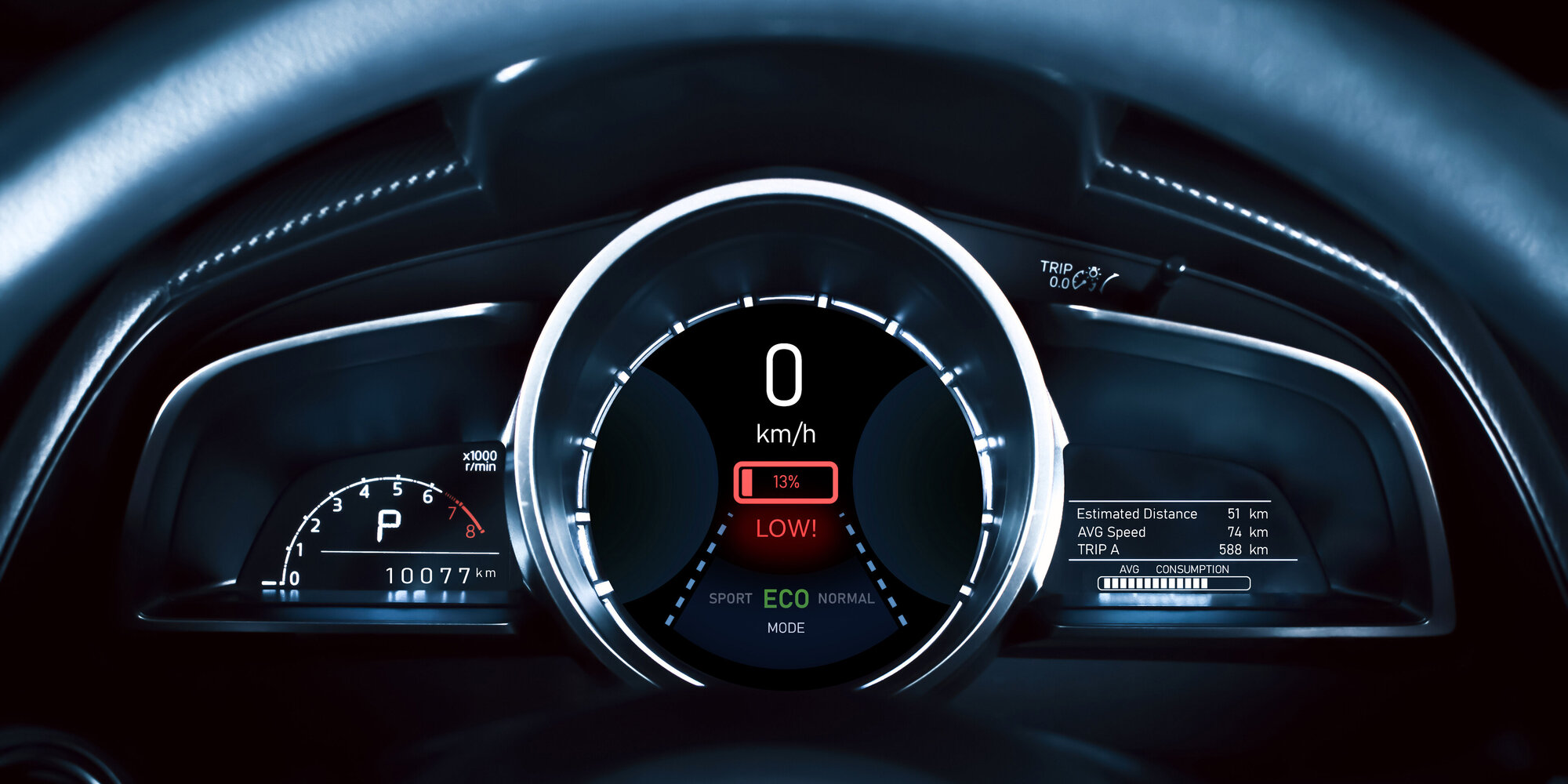Electric car market - from sprint to snail's pace
The Geneva Motor Show is celebrating its 100th birthday. However, the event is primarily characterized by the absence of various top car brands due to gloomy sales expectations. This also applies to the electric vehicle market. Nevertheless, there are opportunities.

After a four-year break, the traditional motor show is returning to Geneva for its 100th anniversary. However, the comeback seems very reserved with only 30 exhibitors. By comparison, there were over 170 in 2019.
The greatly reduced number of participants reflects the gloomy sales expectations for cars, particularly in Europe, and the cost-intensive changeover in the production of electric vehicles. Saving is now the order of the day.
Production in millions of vehicles

In 2024, S&P Global Mobility, a leading provider of data and forecasts for the automotive market, expects total car production to reach 89.95 million vehicles. Compared to the previous year, this corresponds to a decline in global car production of 0.4 per cent or around 350,000 vehicles. A closer look reveals the current weakness in the European market in particular: a decline of 3.6 per cent (ex Russia) is expected here, which equates to a reduction of around 500,000 vehicles. European vehicle production is also estimated to fall by a further 100,000 vehicles in 2025.
Electric vehicles also affected
Following the strong growth in electric vehicles between 2020 and 2022, this has remained at a constant level in Europe in recent months. For the current year, the market expects a total share of electric vehicles of 17%, 2% more than in 2023, which is a rather moderate increase compared to previous years.
Electric vehicles Share of total car sales

One of the main reasons for the lower demand for electric vehicles in Europe is that subsidies have been cut or cancelled altogether. In December, the expiry of subsidy payments in Germany due to the budget crisis made headlines. Other European countries, such as France, have also significantly reduced their support.
Selected EV subsidy changes
| Country | Subsidies | Status |
| Finland | EUR 2,000 | Expired in 2023 |
| France | Up to EUR 5,000 for an electric vehicle | Reduction from EUR 5,000 to 4,000 for households with an income higher than average. |
| Germany | Up to EUR 4,500 for an electric vehicle (no hybrid) | Expired December 2023 |
| Switzerland | No car tax on electric vehicles | Cancellation as of 2024 |
| USA | Inflation Reduction Act Tax Credit of up to USD 7,500 | Reduction in subsidized electric vehicles from 43 to 28 |
| Source: BofA |
The reduction in the subsidy raises the total running costs of electric vehicles almost to the level of combustion vehicles. This also jeopardizes a key argument in favor of buying an electric vehicle.
Running costs per kilometre in Germany (in EUR)

Furthermore, it is undeniable that car manufacturers need to do a better job of developing convincing battery electric vehicles (BEVs) for all price categories. Many customers are currently hesitant to purchase an electric vehicle as numerous car manufacturers have announced major EV platform updates for 2025. These include BMW with the "Neue Klasse" platform, Mercedes-Benz and its "MB.EA" platform, Volkswagen with "MEB+" and Audi and Porsche with the "PPE". This means that, among other things, battery technology will be improved and therefore also the range and charging times. In addition, more models will be available in all price categories.
Automotive manufacturers and suppliers - Stock picker market 2024
The structurally difficult environment is also reflected in the currently very favorable valuation of the sector for automotive manufacturers and their suppliers. However, the current market situation also offers some investment opportunities in the sense of a stock picking market.
European market valuation (Forward P/E)

When picking stocks in the automotive sector, it is important to consider not only the current trends and developments in the industry, but also the financial stability of the companies, their competitive position and their long-term growth prospects. At the same time, it is important to emphasize that investments in the automotive sector harbor risks and that thorough research is essential.
Accordingly, we are selectively positioned in our active, fundamental equity strategies and constantly monitor these investment opportunities and trends from a research perspective.
| Car manufacturer | 2yr - Forward ROIC | Enterprise Value / Invested Capital | ZKB Sustainability Score (A - G) |
|---|---|---|---|
| Stellantis | 20,8% | 0,9x | C |
| BMW | 5,5% | 0,8x | D |
| Mercedes-Benz | 6,2% | 0,8x | D |
| Suppliers | |||
| Forvia | 22,4% | 0,7x | A |
| Continental | 11,8% | 0,7x | A |
| Gestamp | 8,7% | 0,8x | D |
| Tyres | |||
| Michelin | 14,1% | 1,3x | B |
| Pirelli | 6,5% | 0,8x | C |
The table values were selected according to our quality analysis. The business model and the associated prospect of attractive returns on investment capital (ROIC) were taken into account.
Source: ZKB Asset Management / Explanation of the ZKB Sustainability Score, i.e. the best rating is A
Legal notices: The publications were produced by the Buy-Side Research of the Asset Management of Zürcher Kantonalbank and not by the "Financial Analysis" department in accordance with the "Guidelines for Ensuring the Independence of Financial Analysis" issued by the Swiss Bankers Association. The publications are therefore not subject to these guidelines.





